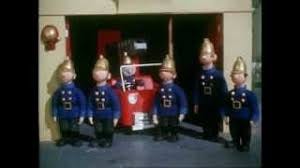Today I want to concentrate on the brain and mind. For thousands of years people have wondered where the mind is and where our thoughts come from. The heart, the liver and the brain were thought to be the place – as well as other more interesting body parts.
It’s been said, If the human brain were so simple that we could understand it, we would be so simple that we couldn’t. It’s a memorable quote but ironically, we’re too simple to know who first said it. It’s often been attributed to biologist Lyall Watson in his 1979 book Supernature but appeared a few years earlier in The Biological Origin of Human Values by physicist George Edgin Pugh. He however, claimed that he was just quoting his father Emerson M. Pugh.
The Pugh brothers are actually named in the roll call of the Trumpton Fire Brigade.
"Pugh, Pugh, Barney McGrew, Cuthbert, Dibble, Grubb." So I suspect that the Pughs may have discussed this concept of the human mind in 1967. It makes sense as it was the summer of love. They probably put strange herbs in their morning cuppa.
I once read an article which suggested that people use the beliefs and technologies of their times to try to understand, describe and explain the mind. So, inevitably, these metaphors changed over time.
When Barney Rubble had an idea he might have said, ‘That strikes a light.’
Plato compared the mind both to a wax tablet and to an aviary. He would have used the wax tablet of course - but a bird cage?
The dominant technology of medieval Europe was the windmill. Which explains why the 60s song The Windmills of Your Mind seems so interminable. Spoiler – it wasn’t available on juke boxes in medieval times, just on lute and hurdy gurdy.
Freud was greatly interested in archaeology which may explain why he considered that the mind had ever deeper and more secret levels. The nineteenth century was a great time for building sewers so this may also have influenced notions that the subconscious contained all sorts of things best forgotten or left to flow away – in Britain at the moment into our rivers and beaches.
Other models compare the mind to a telephone exchange, to a book or a library, even to a theatre. The most common current comparison is to a computer. Although with the growth of AI, it may soon be to Arnie Schwarzenegger as the robot with a big gun and memorable phrases.
We’ve all had experiences of computers going slow and crashing. Many of us, particularly when studying, feel that we can’t cram any more information into our memory.
Gary Larson’s take on a weary student.
When I read the book about metaphors of the mind, I came up with one which satisfied me more than wax tablets, sewage systems or computers.
It is the mind as a forest. The forest is vast and made up of millions of trees and plants, swarming with animals, birds and insects. If we have to be Freudian there are even the roots of plants, the burrows of animals and insects and the vast webs of fungi.
A forest changes daily, even hourly. Things die and others are born. It can be hit by disaster such as forest fires, blight, illness, loss and grief. Sometimes it gets so overgrown and cluttered it could do with a little trimming.
Exactly like the mind, in fact.
I think of my mind as a forest – not a jungle – that’s far too hot, wild and dangerous. A nice temperate forest with different types of tree filled with the song of birds, ferns and plants, shrubs and bushes.
There are countless paths and tracks in my forest, some old, some new made. It’s delightful to explore a new path or even to stroll along one and suddenly stop, thinking, I’ve walked this way before.
Some paths plunge into the dark heart of the forest, others lead to sunny little glades or hillocks. The forest is full of hidden places: badger’s setts, the homes of dormice, the nests of birds, little dens made by children, lost and forgotten as the builders grow older, perhaps discovered again many years later.
So, for me, my brain is not mechanical or technological. It is a wild and wonderful forest. The playground of my mind.
Ah, perhaps a playground is a more appealing metaphor.
Let me know in the discussion box how you view your mind. Do you have an image for it? Does it have a name?







I love the idea that minds are forests - the peace and tranquility alone would be totally acceptable.